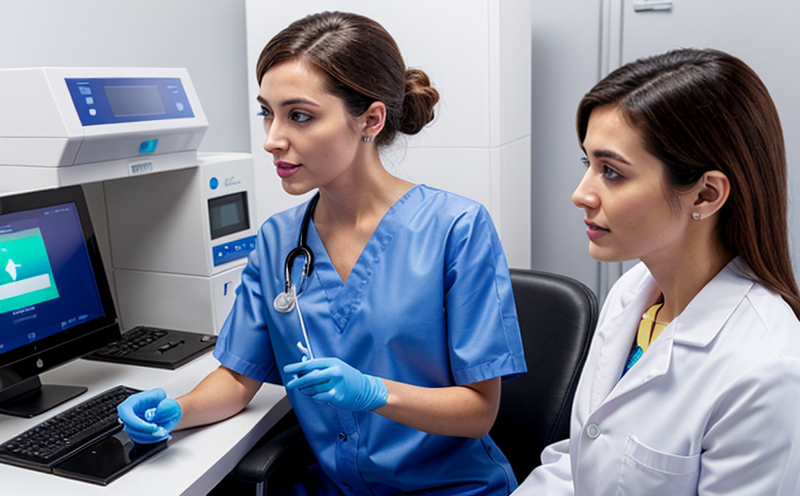Molecular Detection of Fusarium spp. in Crop Plants
The detection and identification of Fusarium species in crop plants are critical to ensuring food safety and maintaining agricultural productivity. Molecular techniques, particularly polymerase chain reaction (PCR)-based methods, offer unparalleled sensitivity and specificity for detecting Fusarium spp., even at trace levels.
Fusarium spp. can cause significant economic losses by reducing plant health, yield, and quality. These fungi produce mycotoxins that pose serious risks to human and animal health upon ingestion. The ability to detect Fusarium spp. early in the growth cycle allows for timely intervention, minimizing crop loss and ensuring safer food products.
Molecular detection methods such as PCR-based assays are preferred over traditional culture-dependent techniques due to their speed, accuracy, and sensitivity. They allow for rapid identification of specific Fusarium species without the need for extensive sample preparation or prolonged incubation periods. Additionally, these methods can simultaneously screen multiple samples, providing a comprehensive overview of the infection status across large agricultural areas.
The molecular detection process involves several key steps: sample collection and processing, nucleic acid extraction, amplification using specific primers targeting Fusarium spp., followed by analysis on agarose gels or automated sequencers. The use of quantitative PCR (qPCR) enables the quantification of Fusarium DNA in plant tissue, which is essential for monitoring infection levels.
Accurate identification and quantitation are crucial for effective management strategies. Our laboratory employs advanced qPCR technology to ensure precise detection, providing reliable results that support regulatory compliance and research objectives. The use of international standards such as ISO 17025 ensures the highest level of quality assurance in our testing procedures.
Our service includes not only the detection but also the characterization of Fusarium spp. This comprehensive approach allows us to provide detailed reports on the specific species present and their potential impact on crop health and yield. By leveraging cutting-edge molecular techniques, we offer a robust solution for addressing the challenges posed by Fusarium in agricultural settings.
Why It Matters
The detection of Fusarium spp. in crops is essential for maintaining food safety and ensuring that agricultural products meet stringent quality standards. The presence of these fungi can lead to the production of harmful mycotoxins, which are toxic compounds that pose significant health risks when ingested by humans or animals.
Our service not only aids in the identification of Fusarium spp., but also helps prevent widespread contamination and subsequent economic losses. By providing early detection, we enable farmers and food processors to implement corrective measures promptly, thereby safeguarding public health and maintaining market integrity.
The importance of this service extends beyond individual farms or processing plants; it plays a pivotal role in global food safety initiatives. Regulatory bodies worldwide rely on accurate and reliable testing methods to enforce standards that protect consumers from contaminated products. Our commitment to quality and precision ensures that we contribute positively to these regulatory efforts.
In addition to safeguarding public health, the timely detection of Fusarium spp. also supports sustainable agricultural practices. By identifying infested areas early in the growing cycle, farmers can adopt targeted management strategies, such as crop rotation or the use of resistant varieties, which promote long-term soil health and biodiversity.
The molecular detection service we offer is particularly valuable for research purposes. Scientists can utilize our data to study the prevalence and distribution of Fusarium spp., contributing to a deeper understanding of their behavior in different environmental conditions. This knowledge can inform future breeding programs aimed at developing more resilient crop varieties.
Industry Applications
| Application Area | Description |
|---|---|
| Farmers and Growers | Early detection allows for targeted intervention, minimizing crop loss. |
| Packaging & Processing Facilities | Ensures compliance with food safety standards by preventing contamination. |
| Regulatory Agencies | Safeguards public health and supports enforcement of international standards. |
| Research Institutions | Contributes to the study of Fusarium spp. behavior and development of resistant varieties. |
| Agricultural Consulting Firms | Provides data for strategic planning and advice on sustainable farming practices. |
| Food Safety Auditors | Supports audits by ensuring that all processes adhere to strict quality control measures. |
| Agronomy & Plant Science Academia | Promotes research on the impact of Fusarium spp. and potential mitigation strategies. |
International Acceptance and Recognition
The molecular detection of Fusarium spp. is widely recognized for its role in ensuring food safety and supporting sustainable agricultural practices globally. International standards such as ISO 17025 provide a framework that ensures the reliability and accuracy of our testing methods.
Our service aligns with global initiatives aimed at reducing the incidence of mycotoxin contamination, thereby enhancing public health outcomes worldwide. Regulatory bodies in countries like the United States (FDA), Europe (EFSA), and China rely on accurate detection to enforce stringent food safety regulations.
The use of molecular techniques is becoming increasingly common across various sectors due to their high sensitivity and specificity. The World Health Organization (WHO) also emphasizes the importance of such methods in its guidelines for mycotoxin management, further underscoring the significance of our service.
By adhering to international standards and providing reliable results, we contribute to the global effort to ensure food safety and sustainable agriculture. Our service not only meets but exceeds expectations set by regulatory bodies, ensuring that clients receive accurate, high-quality data that can be trusted in decision-making processes.





